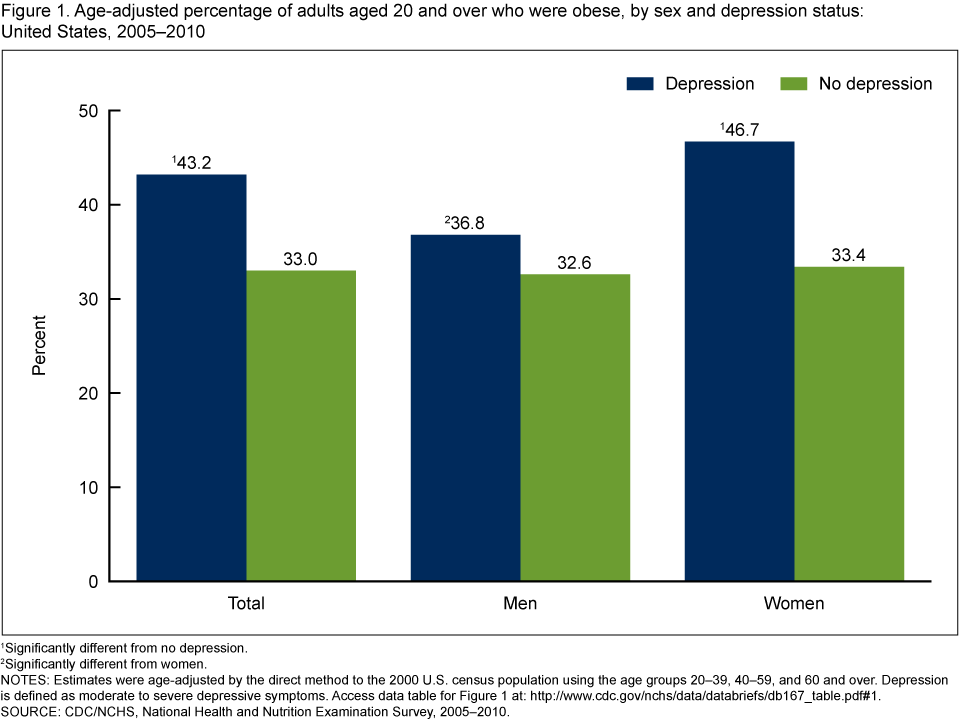Depression and Obesity in the U.S. Adult Household Population, 2005–2010
Posted on byIn 2005–2010, 34.6% of U.S. adults aged 20 and over were obese and 7.2% had depression, based on depressive symptoms experienced in the past 2 weeks. Both obesity and depression are associated with many health risks, including cardiovascular disease, diabetes, and functional limitations. Studies have shown higher rates of obesity in persons with depression. This relationship may vary by sex. Almost 11% of adults take antidepressant medication including persons who are responding well and persons who still have moderate to severe symptoms of depression. Use of some antidepressants is positively related to obesity.
A new report looks at the relationship between depression (defined by moderate to severe symptoms) and antidepressant usage and obesity may inform treatment and prevention strategies for both conditions.
Key Findings from the Report:
- Forty-three percent of adults with depression were obese, and adults with depression were more likely to be obese than adults without depression.
- In every age group, women with depression were more likely to be obese than women without depression.
- The prevalence of obesity was higher for non-Hispanic white women with depression compared with non-Hispanic white women without depression, a relationship that was not present in non-Hispanic black and Mexican-American women.
- The proportion of adults with obesity rose as the severity of depressive symptoms increased.
- Fifty-five percent of adults who were taking antidepressant medication, but still reported moderate to severe depressive symptoms, were obese.
Posted on by


